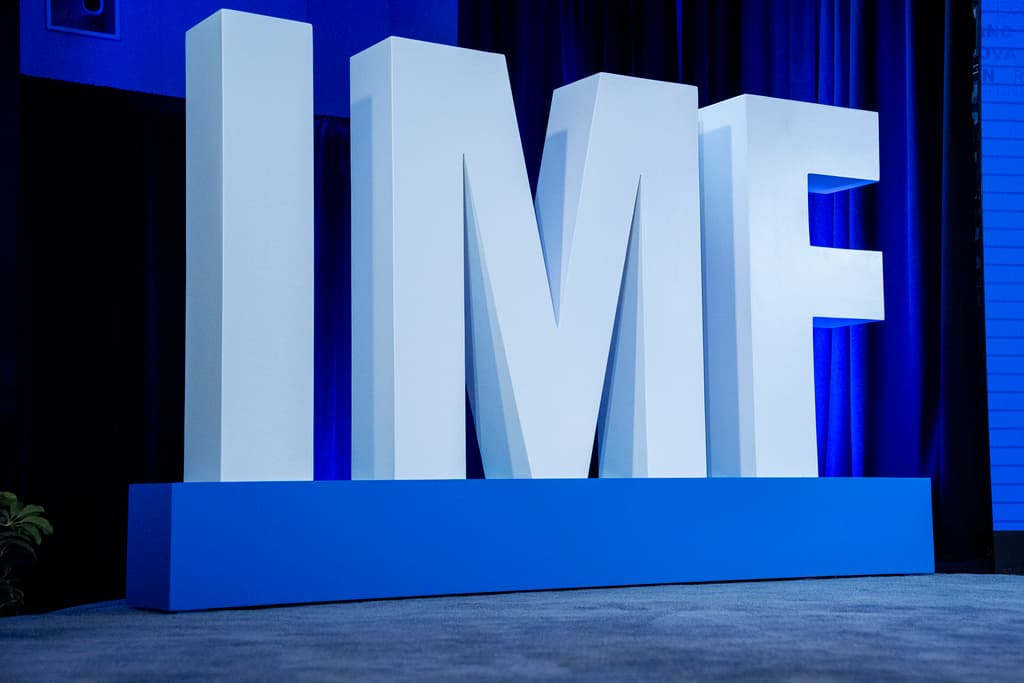The Alarum of the IMF
Mirror, mirror on the wall, who begat the dollar’s fall?

The International Monetary Fund’s alarum that government debts will soon exceed global economic output is akin to Anheuser-Busch warning of expanding waistlines. Meaning, the problem is the IMF ignoring its own role in causing the crisis of beer bellies. It, after all, is a pillar of the system of fiat money that has come to dominate the world economy since the collapse of the gold exchange standard. Huge government debt and debasement of our money is the result.
Government debt, the IMF reports, is slated to rise to $100 trillion this year, a level that, per the Wall Street Journal, would amount to 93 percent of the world’s output of goods and services. By the end of the decade, the IMF reckons, the red ink could “match annual world output,” the Journal adds. “It’s time for governments to get their house in order,” the IMF’s deputy director for fiscal affairs, Era Dabla-Norris, lectures with a straight face.
Ms. Dabla-Norris calls for a “strategic pivot” to “reduce debt risks.” The best such pivot, though, would be a move to sound money. We get that fiscal indiscipline plagues governments across the world. It’s all too easy to borrow to cover excessive spending, especially when central banks like the Fed have kept interest rates artificially low. This sea of red ink would be impossible, though, under a gold standard, with scrip convertible into specie at a fixed legal rate.
It was the last vestige of that system that expired in the 1970s, when Nixon and Congress severed the dollar’s link with gold. The gold standard, in its heyday, had imposed a fiscal discipline on governments, putting a brake on excess spending and borrowing. A metallic standard is incompatible with public profligacy and reckless indebtedness. Since abandoning honest money, governments have been borrowing and spending with abandon.
The IMF, urged on by America, made it possible. After Nixon gave up on gold, policy makers at Washington didn’t want Europeans to get any ideas about using their stores of monetary metal to gain any economic advantage, monetary maven James Grant explains in the Interest Rate Observer. The goal, a state department official, Thomas Enders, noted in 1974, was the “demonetization of gold, to begin to get gold moving out of the system.”
The Europeans, by that point, had more gold in their vaults than America. So, Enders feared, that could give Europe “the dominant position in world reserves and the dominant means of creating reserves.” He explained “it’s a question of who has the most leverage internationally.” So it was that any role for gold in the world economy was eliminated. This required the IMF, formed under the gold-based Bretton Woods system, to be overhauled.
In 1978, the IMF’s Articles of Agreement were revised to forbid the fund’s “authority to buy gold or engage in gold transactions such as loans, leases, swaps, or use gold as collateral.” Member nations were barred from pegging currencies to gold — at odds with the IMF’s founding mission of “exchange stability.” The IMF has floundered since, unable to forge “a system of stable exchange rates” absent the “gravitational center” of gold, its historian, James Boughton, notes.
The IMF’s nearly 50-year-old anathema against gold could end up crimping the effort by the so-called Brics nations — a motley crew led by Russia and Communist China — to develop a new currency to rival the dollar. Our Novi Zhukovsky reports the Brics bloc is eyeing the use of gold to back up its upstart new scrip. Yet that plan could run afoul of the IMF policies that America foisted on the world in the 1970s. The fiat dollar might yet have the last laugh, if a hollow one.
Yet while the IMF was demonetizing gold, Mr. Grant marks that its “prevailing market price was $163 an ounce.” So a dollar was valued at a 163rd of an ounce of gold. If the goal was debasing the fiat dollar, it was a success. It’s no coincidence that as world debt soars to record highs, the greenback nears a new low in terms of gold: A 2,700th of an ounce. If the IMF eyes a pivot against the debt spiral, what about remonetizing gold? Let us raise a stein to that.

